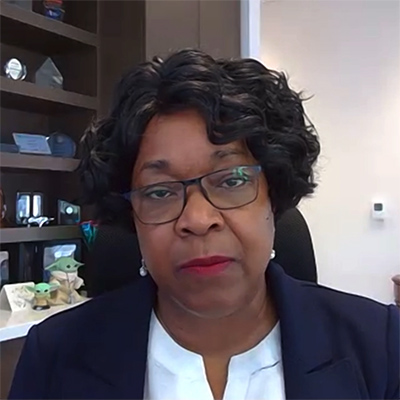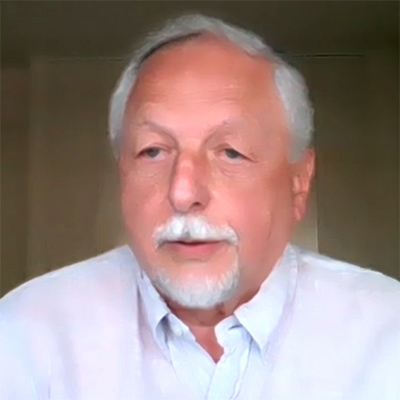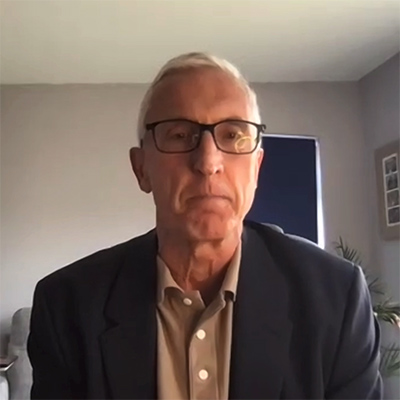The winter storms of February, and resulting mass outages across Texas and the Midwest, gave electric industry stakeholders a new appreciation for the importance of resilience measures, panelists told a virtual press briefing hosted by the United States Energy Association on Friday.

“Over and over again [in the past] resilience was never ranked. It was always about affordability and reliability. Customers felt like resilience was the thing that utilities had to do, but [it] would never really affect them as much,” said Paula Gold-Williams, CEO of San Antonio’s CPS Energy. “I think what happened with this winter storm … was that [the] resilience aspect of the system … really has [been] elevated. … I think we saw that you can’t just fight this journey through the thicket with ideology.”
But to fully take advantage of the renewed momentum behind resilience, panelists said the conversation must go beyond the weather-focused actions championed in the wake of February’s storms. Cybersecurity also featured prominently during the briefing, reflecting concern about the recent high-profile events such as last year’s SolarWinds hack and the ransomware attack in May that shut down the fuel supplies delivered to the U.S. East Coast by Colonial Pipeline.
Cost Concerns Could Derail Investments
These examples of cyber vulnerabilities have also led to calls for action, but panelists on Friday’s webinar expressed skepticism that ratepayers and regulators fully understand the expense of needed investments. Richard Mroz, a former president of the New Jersey Board of Public Utilities and currently managing director at Resolute Strategies Group, highlighted the importance of stakeholder consensus for making progress on issues such as finance that could easily become contentious.

“As Paula mentioned, we’re now talking about something much more than the traditional perspectives on reliability, and that means it’s going to cost more,” said Mroz. “And we need to embrace that. … I think it’s important for us as thought leaders in the industry [and] regulators, first to define the setting in which [we’re] referring to resilience. The second, I think, is for decision makers, regulators, policymakers and the industry to come together … [and] determine what is the consequence we’re trying to avoid by these resilience measures.”
Regulators who understand the complexity and cost of needed resilience improvements must also be prepared to lend appropriate support to utilities that don’t always have the freedom to try unproved strategies. Joseph Fiksel, professor emeritus of integrated systems engineering at Ohio State University, reminded listeners that the electric industry operates at “tremendous sunk cost and tremendous inertia” and “cannot afford to take a lot of risks” that could put performance in danger for no return.
Participants Praise Biden’s Cyber Initiatives
The struggle for cyber preparedness has attracted support from prominent members of the government in recent months, including President Biden. Biden has taken a number of actions aimed at fighting back against malicious actors, most recently with the announcement last week of a voluntary initiative to strengthen the defenses of priority infrastructure operators. (See Biden Launches ICS Cybersecurity Initiative.)

Asked about the significance of Biden’s actions, Gold-Williams praised the president for attempting to bring clarity to the sometimes murky waters of cybersecurity. However, she also expressed concern that voluntary measures would not be enough to bring the necessary concerted actions.
“The president making a statement that highlights the importance of [cybersecurity] matters. I don’t, however, think that it’s all just about voluntary [actions],” Gold-Williams said.
“There are tons of people who want to do everything they can — it’s not a matter of not wanting to do [it], or volunteering. It is very complex and every day it becomes more and more expensive to try to figure out how to defend yourself from bad actors, who could be anything from a nation-state [to] just someone who’s out there for kicks and thrills.”

Panelists also stressed that realism is as important as enthusiasm in taking on the immense task ahead. The industry cannot afford to expend its energy in a frenzied burst, only to lose heart as the challenges seem to remain just as staggering as before, they said. In addition, regulators, policymakers and utilities must remember to address all facets of the issue rather than focusing on the source of the most recent negative headlines or public concerns.
“There’s no question that resiliency is a multi-dimensional problem, and we have to address infrastructure and hardening along with response and recovery,” said Mark McGranaghan, vice president of power delivery and utilization at the Electric Power Research Institute (EPRI). “Addressing one doesn’t preclude investments in the other, because there are always going to be events … [and] the criticality of those events is only increasing as we electrify more critical infrastructure.”




